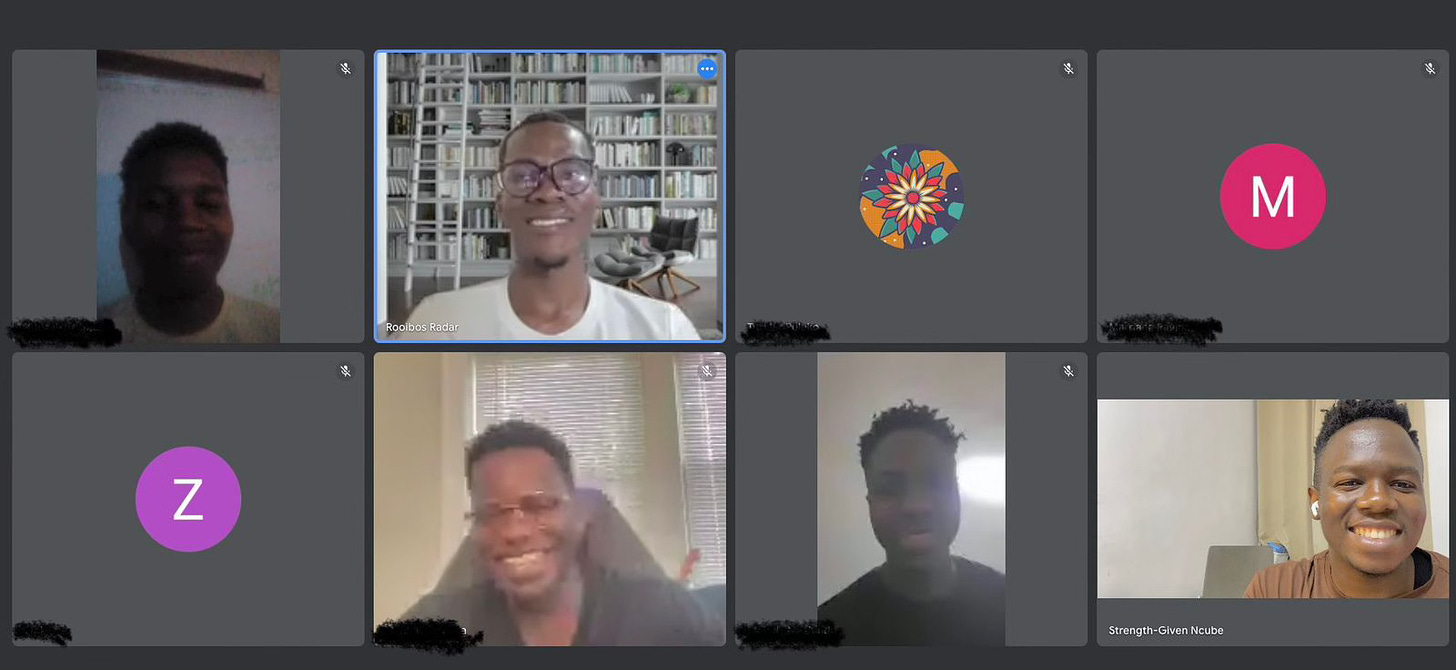Rooibos Radar Live Highlights: Balancing Mentorship and Funding for African Startups.
Hi entrepreneurs and tech enthusiasts,
On Saturday, the 14th, we hosted our second live session with the followers and subscribers of Rooibos Radar. Big thanks to our guests for making the event a success. In the conversation we tackled a thought-provoking question that often goes unanswered: "Are African founders over-mentored and underfunded?" We dove deep into this topic, exploring the root causes and discussing possible solutions that might help us strike a better balance. The goal was to understand how we can bridge the gap between a healthy amount of mentorship and the much-needed funding for startups. Time and again, we’ve seen that African founders are competing in a world that often feels like it's set against them.
The Startup Landscape
African startups are driving innovation across various sectors—from fintech and agritech to logistics, vehicle financing, and e-commerce. The Big 4 (Nigeria, Kenya, South Africa, and Egypt) are leading the charge, attracting a significant chunk of investment. Despite the growth of technological innovation and the strides made across the continent, funding remains scarce.
The Role of Mentorship
Mentorship undeniably plays a crucial role in the success of startups. It's essential for building foundational skills and providing valuable guidance. However, the imbalance becomes apparent when we see a surge in mentorship without a corresponding increase in funding. Mentorship is vital, particularly when it comes to:
Knowledge Transfer: Experienced mentors help entrepreneurs develop essential skills and avoid common pitfalls.
Networking Opportunities: Mentors connect startups with potential investors and partners, increasing their chances of securing funding and growing their businesses.
The Funding Reality
Even with the recent surge in African startup innovations, many face significant funding challenges. Limited access to capital often leads to a failure to scale.
In 2019, African-founded startups crossed the billion-dollar mark in funding for the first time. In comparison, US founded startups receive an average of $150 billion per year and Chinese startups making up close to $100 billion in a calendar year. 2022 was a landmark year for African startups, with VC funding reaching a record $3.3 billion over 786 deals. However, 2023 saw a steep decline, with the continent raising only $2.9 billion—a 39% drop. So far, 2024 has recorded a modest $1.2 billion in funding.
The Perception of High Risk
One major issue is the perception of African startups as high-risk investments. This perception stems partly from our own PR missteps. In the West, it’s often easier to raise funds for humanitarian aid in Africa than to secure funding for an innovative healthcare startup. Because of this high-risk perception, many organizations offer mentorship programs as a way to mitigate that risk, instead of providing the necessary funding.
More to Do
There may be deeper reasons why the pace of innovation and funding don't align. Perhaps we need to focus more on building ourselves up before seeking global support. Our local financial institutions and governments might have significant roles to play in this. Many entrepreneurs believe that government policies need to evolve to create a more conducive environment for foreign investment. But policies are just one piece of the puzzle.
What about skills development? Investors aren't just looking for brilliant ideas; they want solid technical teams. And what about changing the global narrative of Africa as a continent struggling with wars, malnutrition, and poverty? Maybe it's time we do some PR work for ourselves.
Perhaps in closing we could say the challenges facing African startups—over-mentorship and underfunding—are complex and multifaceted. While mentorship is undeniably valuable, it can't replace the capital needed to scale innovative ideas into sustainable businesses. The funding landscape has seen some positive shifts, but there's still a long way to go. Changing the high-risk perception of African startups requires a concerted effort, from improving PR and storytelling to building stronger local ecosystems and advocating for supportive government policies. It’s clear that for African founders to thrive on the global stage, a balanced approach that combines effective mentorship, adequate funding, and a more favorable perception is essential. The future of African entrepreneurship depends not only on outside support but on how we invest in and advocate for ourselves.
Want to be a part of the next discussion? Or meet young African Entrepreneurs navigating this rocky tech landscape? Join our WhatsApp Group Chat
See you on the next one!




